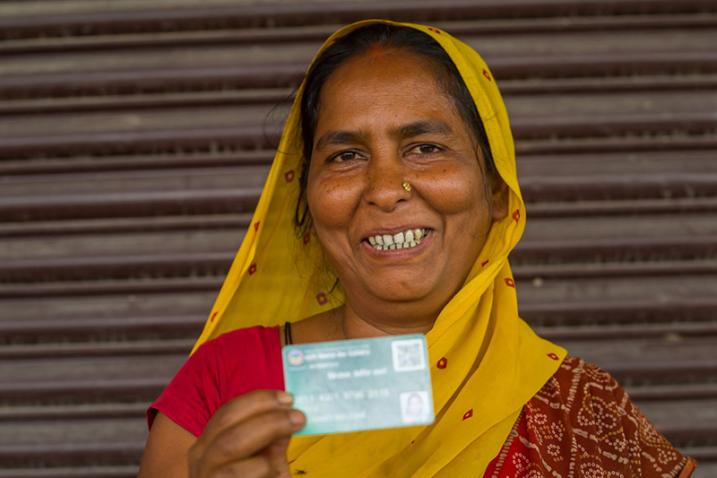Digital remittances towards financial inclusion and cost reduction
It is projected that by 2030 more than US$ 5 trillion will have been sent home by migrants to low- and middle-income countries (LMICs), with much of this money going directly to rural areas where 80 percent of the world’s poor live, facing food shortages and the impacts of climate change.
This money is sent by migrant and diaspora communities and directly supports millions of families in achieving the Sustainable Development Goals (SDGs) by contributing to their poverty alleviation, education, healthcare, small business development, gender equality, and rural economic growth.
The International Day of Family Remittances (IDFR) highlights the economic impact of this money on households, communities, and nations, and recognises the sacrifice, separation and generosity often involved.
The IDFR is one of the key initiatives to implement the Global Compact for Safe, Orderly and Regular Migration (Objective 20), which calls for the reduction of remittance transfer costs, and greater financial inclusion through remittances.
IDFR 2023-2024 Campaign
The IDFR campaign contributes to publicizing actions in the framework of the #FamilyRemittances Campaign 2020‑2030: “Support one billion people to reach their own SDGs”.
The theme of the 2023-2024 #FamilyRemittances campaign is “Digital remittances towards financial inclusion and cost reduction,” highlighting the positive effects of digitalization in reducing costs, improving access, and advancing financial inclusion.
This initiative acknowledges the contributions of migrants and emphasizes the need to ensure inclusivity and access to digital remittances and financial services for all, in line with the SDGs universal value of “leaving no one behind.”
On 16 June, 2024, we recognize the contributions that migrants around the world make to their families, friends, communities, and countries through the money they send home, helping families achieve their own SDGs. We also recognize and commend all those involved the significant achievements that have been made in and around international and domestic remittances to facilitate affordable, safe, secure, transparent, fast and convenient remittances services.
Celebrating the Successes
- Remittance costs have decreased significantly since 2009 from 9.7 to 6.2 per cent of the send amount.
- Digital remittance services are even cheaper at around4.6 per cent of the send amount.
- Access to digital remittance and financial services globally has also improved, driving financial inclusion.
- Efforts to reduce gender gaps in account ownership were successful, with the gap falling from 9 to 6 percentage points in developing countries.
Still Work to Do to ‘Leave No One Behind’
- SDG10.c is not on track for 2030, with the remittance costs still too high and varying by region.
- 1.4 billion adults worldwide are still unbanked and unable to access digital services.
- Most unbanked adults worldwide are women, and gender, income, age, education, and workforce gaps remain in every region.
- The rural-urban account ownership gap varies widely, and one third of the global population remains unconnected to the Internet.
- 760 million people worldwide do not have access to electricity.
- Close to 40% of adults in LMICs do not have an ID.

2024 Events
IFAD hosts a series of events leading up to the IDFR:
- Nairobi, Kenya: Friday, 7 June 2024
- Kathmandu, Nepal: Monday, 10 June
- Banjul, The Gambia: Thursday, 11 June
- Dakar, Senegal: Tuesday, 11 June 2024
- Rabat, Morocco: Wednesday, 12 June 2024
- Accra, Ghana: Thursday, 13 June
- Kampala, Uganda: Thursday, 13 June
Endorse the day, join the campaign!
Use the form to share:
- Video – a short video of no longer than 90 seconds with short sentences and clear messages in support of IDFR by your Principal.
- Statement – a brief written statement by your organization of no more than 400 words on your entity’s letterhead.
- Initiative - describe your initiatives, successes and innovations that contribute to achieving the SDG 10.c target and leverage the impact of migrant contributions through remittances and investments.
Use the IDFR 2023-2024 Trello Board to get inspired and build your own social media package! Use the hashtags #FamilyRemittances #LeaveNoOneBehind #SDG10





